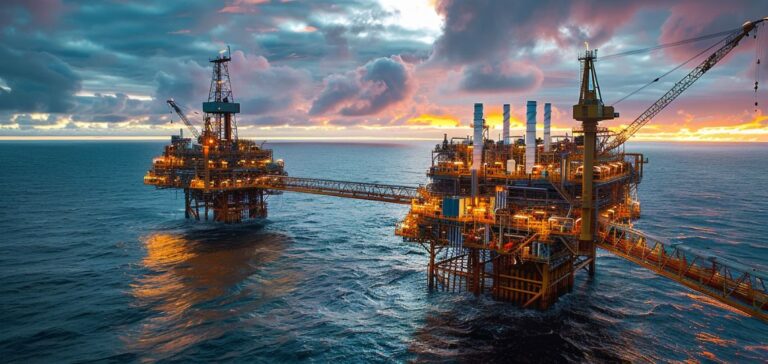Brent crude oil prices are projected to average $73 per barrel in 2025, a $7 decrease from the previous year, according to Wood Mackenzie’s latest monthly forecast. This estimate represents a slight downward revision of $0.40 compared to the initial forecast in February. The decline is primarily driven by two key factors: OPEC+ production decisions and US tariff policies.
OPEC+ is expected to gradually increase its production starting in April 2025, with monthly increases through September 2026. While these increases are relatively moderate, any delay in this policy could support prices and mitigate the impact of additional US tariffs. On the demand side, global oil consumption is forecasted to rise by 1.1 million barrels per day (b/d) in 2025. However, this growth may be exceeded by an increase in non-OPEC production, which is expected to grow by 1.4 million b/d, thus easing pressure on prices.
The increase in non-OPEC production will primarily come from conventional projects, which are less sensitive to price fluctuations. Meanwhile, global economic growth is projected at 2.8% in 2025, but this forecast could be revised downward due to trade tensions. A slowdown in GDP growth could lead to a reduction in oil demand of around 0.4 million b/d, altering the demand trajectory for 2025. This would limit the room for OPEC+ to implement its production increase plans.
Wood Mackenzie notes that these forecasts are subject to adjustments based on the evolution of global economic conditions, trade policies, and decisions made by OPEC+.
OPEC+ and US policies influence the oil market
OPEC+ plans to implement gradual production increases between April 2025 and September 2026. However, any change to this plan could play a significant role in supporting prices, especially if US tariff policies are strengthened. The potential impact of these tariff hikes could mitigate any upward pressure on prices if global demand remains below expectations.
Economic growth and non-OPEC production impact the forecasts
Wood Mackenzie’s forecasts suggest that a global economic slowdown could reduce oil demand by 0.4 million b/d. This decrease would be partially offset by increased production from non-OPEC countries, which are mainly focused on conventional projects. These projects, less sensitive to price fluctuations, may weigh on OPEC+ efforts to stabilize the market while achieving its production goals.





















